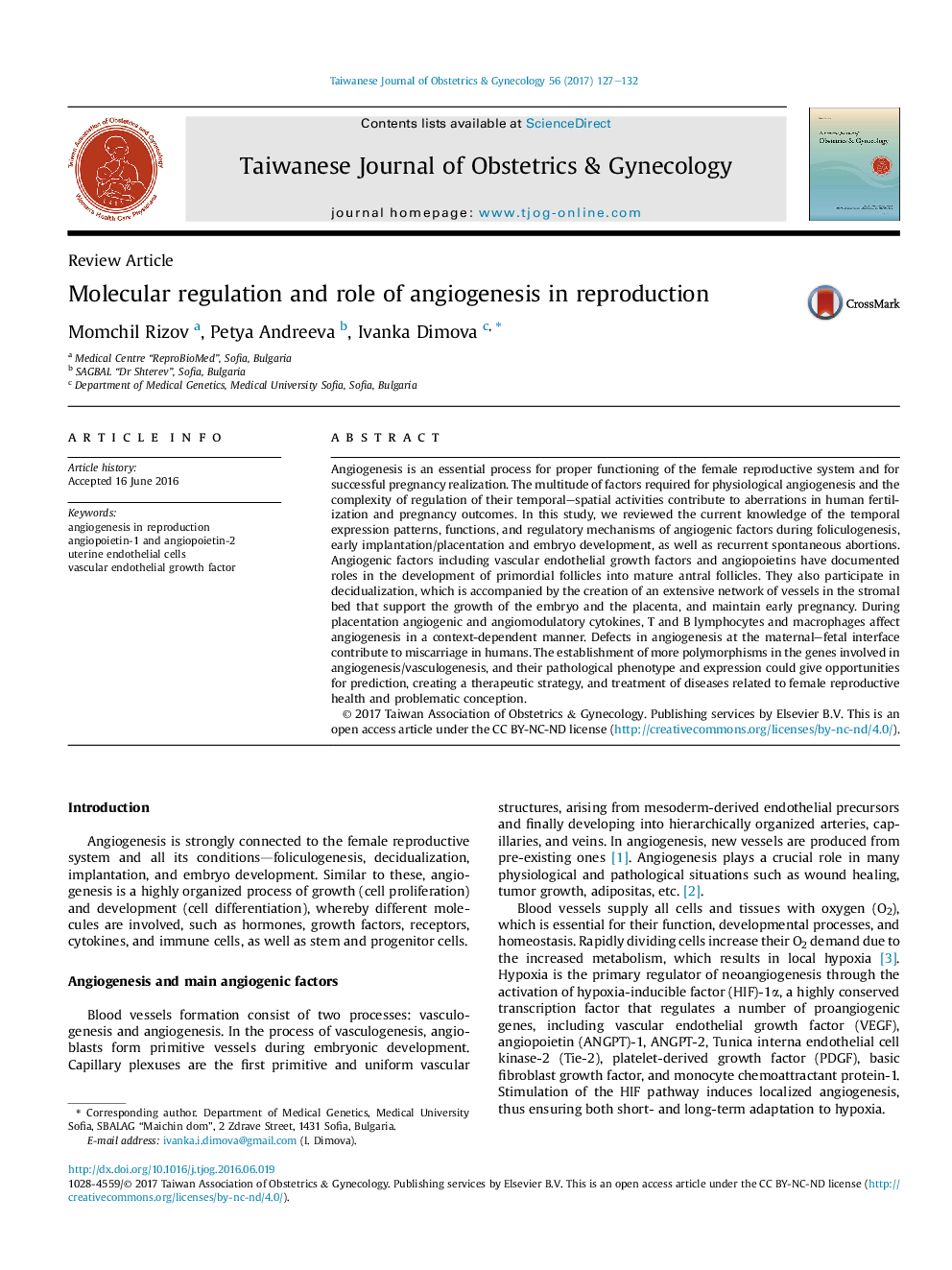| Article ID | Journal | Published Year | Pages | File Type |
|---|---|---|---|---|
| 8784599 | Taiwanese Journal of Obstetrics and Gynecology | 2017 | 6 Pages |
Abstract
Angiogenesis is an essential process for proper functioning of the female reproductive system and for successful pregnancy realization. The multitude of factors required for physiological angiogenesis and the complexity of regulation of their temporal-spatial activities contribute to aberrations in human fertilization and pregnancy outcomes. In this study, we reviewed the current knowledge of the temporal expression patterns, functions, and regulatory mechanisms of angiogenic factors during foliculogenesis, early implantation/placentation and embryo development, as well as recurrent spontaneous abortions. Angiogenic factors including vascular endothelial growth factors and angiopoietins have documented roles in the development of primordial follicles into mature antral follicles. They also participate in decidualization, which is accompanied by the creation of an extensive network of vessels in the stromal bed that support the growth of the embryo and the placenta, and maintain early pregnancy. During placentation angiogenic and angiomodulatory cytokines, T and B lymphocytes and macrophages affect angiogenesis in a context-dependent manner. Defects in angiogenesis at the maternal-fetal interface contribute to miscarriage in humans. The establishment of more polymorphisms in the genes involved in angiogenesis/vasculogenesis, and their pathological phenotype and expression could give opportunities for prediction, creating a therapeutic strategy, and treatment of diseases related to female reproductive health and problematic conception.
Keywords
Related Topics
Health Sciences
Medicine and Dentistry
Obstetrics, Gynecology and Women's Health
Authors
Momchil Rizov, Petya Andreeva, Ivanka Dimova,
